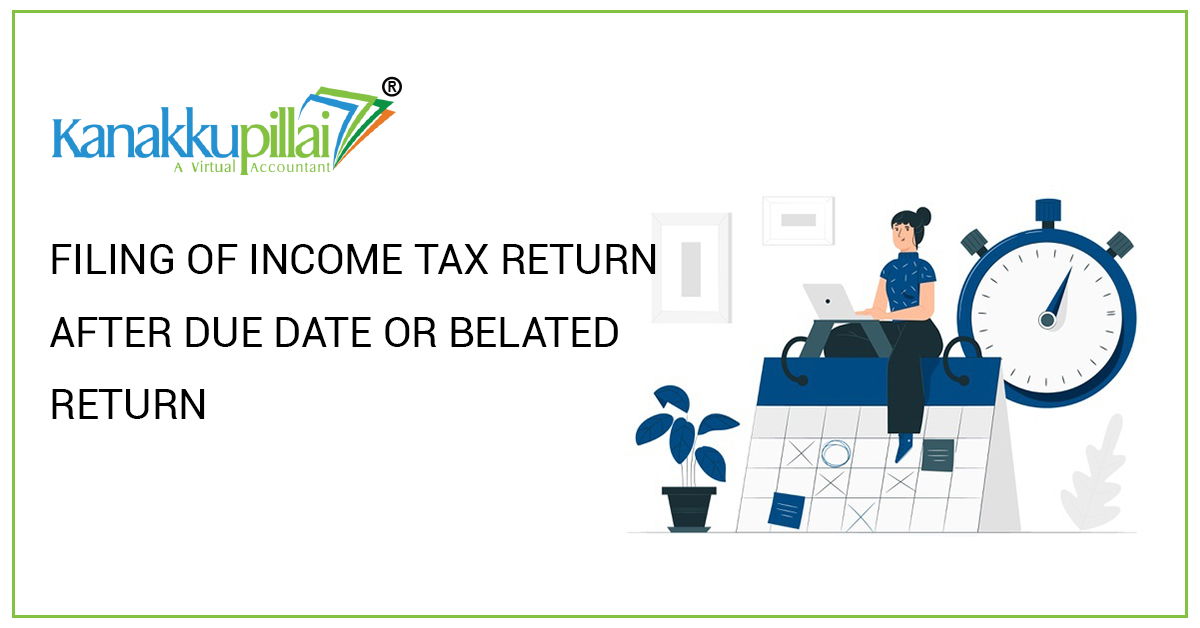Last Updated on September 24, 2025
In India, taxpayers are required to file an income tax return (ITR). Nonetheless, most people fail to meet the original deadline for different reasons. In this scenario, the deadline date of the overdue income tax return will be very crucial. The Income Tax Act of 1961 provides an opportunity to file a late ITR; however, with certain consequences, including penalties, interest, and forfeiture of benefits. The rules associated with the late filing of income tax are crucial in ensuring that they are followed and no legal issues arise.
What is a Belated Income Tax Return?
A belated income tax return is submitted after the due date but before the expiry of the original due date, as provided by Section 139(1) of the Income Tax Act. According to the law, taxpayers who do not pay by the required deadline may still submit their return in accordance with Section 139(4). They should, however, do so prior to the due date of the late income tax returns, which is usually before the end of the assessment year in point or before assessment completion, whichever occurs first.
As an illustration, when the dates of filing ITR are for the Assessment Year 2024-25, July 31, 2024, then the company would have a late income tax return deadline of March 31, 2025.
Late Due Date of Income Tax Return for Different Taxpayer Categories
Where the person is not in need of an audit, they are supposed to pay by July 31 of the assessment year. The due date is typically October 31 for businesses or firms that require an audit. In the event of missed dates, the taxpayer may still file a late ITR before the belated income tax return date, i.e., March 31 of the following year.
This extended deadline under the law of income tax gives even the in-time users a possibility to meet the deadline.
Implications of Submission of Late Income Tax Return
Although the late due date of the income tax return gives relief to the taxpayers, there are also some drawbacks attached to the late filing.
Interest and Penalties
According to Section 234A, an interest rate is applied to the amount of the unpaid tax on the original due date up to the date of filing of the belated return. Also, a fine of up to Rs.5,000 can be imposed under Section 234F for failure to meet the original deadline.
Forfeiture of Carry Forward Benefits
Losses under the head Capital gain or business and profession cannot be carried forward by taxpayers who filed their returns after the due date, except for losses incurred in house property. This renders the time lines filing more profitable than the late date of the income tax return.
Delay in Refunds
Late filing usually causes the delayed income tax refunds. The Indian taxation system prioritises late filers; therefore, they take a considerable amount of time to process.
Revising a Belated Income Tax Return
The Income Tax Act also provides taxpayers with an opportunity to correct a late return in the event they discover an error or failure to file a return. Section 139(5) provides the option to file a revised ITR before the end of the assessment year or before the end of the assessment, whichever comes earlier. This implies that you can correct the mistakes before the due date for income tax returns, even when you are late.
Exception to Belated Income Tax Return Rules
The government can offer deadline relaxation in rare cases under extraordinary circumstances. An extension of the original due date and the late submission date of the income tax return may be granted due to natural disasters, pandemics, or technical issues with the income tax e-filing portal.
These exemptions in the Indian income taxation laws explain why the government aims to provide equal opportunities for compliance to taxpayers.
Significance of Filing Late ITR before the Due Date
Although there are repercussions for filing late, it is still better than not filing at all. Late filing of an ITR or failure to file can result in prosecution under the Income Tax Act, with imprisonment ranging from 3 months to 2 years, along with fines. Therefore, paying the taxpayer on time, that is, after the deadline without failure, ensures that the taxpayer is not subject to severe legal consequences and punishments.
Conclusion
The late filing of an income tax return provides taxpayers with a second opportunity to fulfil their duty in accordance with the Income Tax Act, 1961. Although it comes with relief, there are penalties, loss of benefits, and a risk of delayed refunds. Material taxpayers are therefore expected always to strive to submit their ITR within the initial due date. Nonetheless, when overlooked, it is vital to file it in time before the date of filing the income tax form, as billing late can result in penalties and prevent consideration in a timely manner, potentially leading to legal actions.
To seek professional help, one can refer to tax professionals and online legal consultancy firms to ensure that they do not make any mistakes during filings. As long as taxpayers are well-planned and act in a timely manner, they will not face penalties and will enjoy the full benefits of the Indian tax system.





